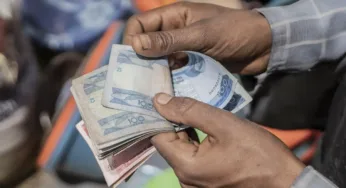Ethiopia underwent a seismic financial transformation over the past week, floating the Birr after nearly five decades of captivity. The monetary upheaval cosigned by multinational financiers like the International Monetary Fund (IMF) and the World Bank resulted in a week of panic as the Birr plunged by nearly 80pc from around 57 birr against the dollar to above 100 in some commercial banks.
Every player across the economic ladder, from the street vendor retailing paltry pieces of imported commodities to the stewards of the banking industry located in the capital’s financial district, is adjusting to the new norm. Finance Minister Ahmed Shide assured parliamentarians gathered for an urgent meeting to approve a 500-million-dollar credit line late Wednesday that the short-term spike in prices would mean little compared to the benefits of macroeconomic stability in the long run.
“A chaotic response early on is expected,” he said.
A formidable financial buffer buttressed by what is reportedly around 20 billion dollars over four years from a mix of credit line grants extended by the IMF, World Bank, and International Finance Corporation, among others, looks to safeguard Ethiopians from the harshest of blows arising from the fallout.
Prime Minister Abiy Ahmed (PhD) pointed out that Ethiopia’s imports have primarily relied on parallel foreign currency markets, characterizing the floating of the Birr as a unification of markets more than anything else.



No Comment Found.